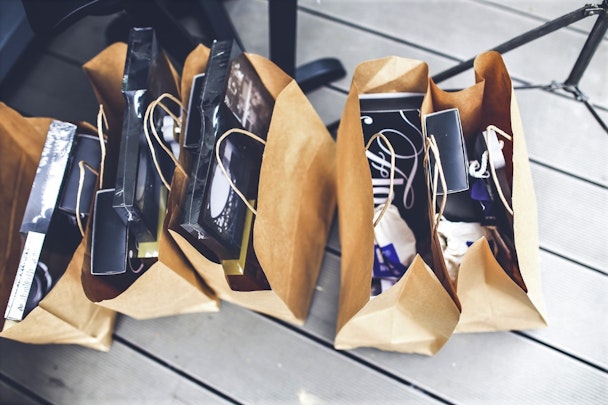It’s time to boycott Black Friday and strive for authenticity
Here it comes again, that festival of conspicuous consumption known as Black Friday (no longer one day but sometimes weeks of hysterical retail activity). It’s also the epitome of an artificial “event” driven purely by short term profit gain.

Consumers, particularly younger demographics, are fast waking to the reality that businesses are manipulating them, and they are rejecting the market-first constructs of the past.
A growing movement that reaches across demographics and market sectors is starting to reject consumerism, as typified by the bland minimal aesthetic that keeps houses as properties not homes, and the endless cycle of fashion. These long-established ideas are beginning to lose their hold on the collective consumer consciousness.
Self-expression and maximalism return to help Britons make their home their castle in uncertain times. Fashion editors recognise how real people shop and start writing about how to fit new purchases into your existing wardrobe. Features on sustainable brands and the pepper commuter reading.
In a generation that has grown up with the artificially titivated projections of their peers and the judgemental gaze of social media, one quality seems to be emerging as a core value; a red thread that runs through all of these trends: authenticity.
The power of authenticity
This isn’t just about the experience economy – where more and more consumers are valuing experiences over buying new or more stuff. It’s the focus on valuing things (food, drink, clothing, holidays) because of their ethos, provenance or the craft and care that went into making them.
Artisan bakeries, breweries and distilleries; the rise of Etsy, upcycling stores and the popularity of vintage fashion and charity shops: all are related to a shift in perspective that’s starting to gain momentum, driven by a generation valuing authenticity in people, products and businesses and looking to reduce waste and protect the planet along the way.
If consumers are valuing authenticity shouldn’t brands? Being authentic isn’t just about the provenance of your product, it’s about how you act as a business - this is being scrutinised by consumers too.
Which is why, as the Black Friday and Xmas retail frenzy kicks off once more, the brand that’s getting it right is Iceland, with its environmental message and promise not to use habitat-destroying palm oil in any of its products. Here is a brand I can buy into for the longer term, not just for Black Friday (or Christmas)! Building on its announcement in January to remove plastic packaging from its own label products by 2023, Iceland’s status as a private, family owned business allows it to act on principle and its comprehensive policies referred to as “Our power for good” is both inspiring and reassuring for consumers.
Changing the conversation
How can brands swim against the tide of short-term gain? They need to understand the changing meaning of value - and the growing influence of the new value levers, community and choice, on consumer behaviour.
Choice as a value lever is not about offering ‘choice’ (too much choice paralyses us) but about helping consumers choose your brand. In marketing, that means being clear about provenance or eco-credentials and making your product story compelling. Perhaps you don’t have that story yet but you’re pledging to change things - like Waitrose with its coffee cups, which had become a huge recycling headache off the back of their free hot drink in store offer for myWaitrose cardholders. In order to change the message, they went one step further: if they couldn’t recycle all the cups they decided not to use them at all and changed their reward offering to a free hot drink when you bring your own cup. In real terms this means fewer people enjoy the benefit, but the move was applauded by customers and non-customers alike.
Community matters
Community is about demonstrating good citizenship and inviting customers to get closer to the deeper meaning of your brand. In a world that is both fragmented and polarised, this is not an easy line to tread, but it can yield passionate advocates. Even long-established brands can embrace Community - staying modern requires it. For example, Richard Branson’s Virgin masterbrand has evolved its purpose over the years from anti-establishment to anti- societal wrongs – they now firmly state that they exist to “change business for good”. There’s still an enemy, it’s just changed, as the brand, and Branson, has matured.
Brands may still try to lure people into consuming more, but it seems that more and more of them have stopped listening. Consumers are savvier than ever, and they’re choosing their brands according to different rules. So, reject Black Friday and all it entails. Set your sights higher and further. Protect your profit by embracing what makes your brand authentic and establish your ethical and sustainable credentials - before you market your brands into irrelevance.
Jen Musgreave, strategic insight director, Rapp UK
Content by The Drum Network member:

RAPP UK
Find out more
